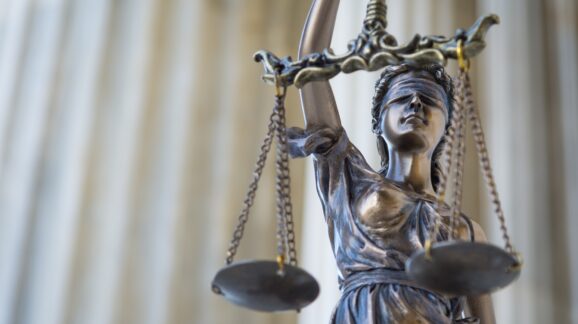Challenging the Excessive Powers of an Administrative Law Court
It's time for the Supreme Court to restore the rule of law.
At least one form of government abuse might end soon. The U.S. Supreme Court heard oral arguments this term for Securities and Exchange Commission v. Jarkesy, which challenges the unlawful powers wielded by administrative-law courts (ALCs). These are courts inside agencies that do not afford civilians the same protections as independent courts. ALC defendants typically do not get the right to a jury trial. The judges are employed by the agency that also pays their salaries. The agency also sets the ALC’s procedural rules, has different evidence-sharing standards that favor the agency, and stacks the deck against defendants in ways regular courts never could.
The Jarkesy case challenges some of these excesses. The Supreme Court already ruled unanimously against the SEC and FTC’s ALCs in Axon v. FTC (2023), so it may very well again decide to strip the SEC’s court of some of its extra-constitutional privileges.
The Jarkesy case is named for George Jarkesy, a hedge-fund manager who, alongside his financial adviser Patriot28, was charged with securities fraud. Jarkesy’s civil-fraud case in the SEC’s ALC lasted seven years. Like nearly all of the SEC’s ALC defendants, Jarkesy lost before an administrative-law judge (ALJ). He lost again before the full commission. Only then was Jarkesy allowed to appeal his case before a regular court, namely the Fifth Circuit.
The Fifth Circuit court issued a 2–1 ruling in Jarkesy’s favor, asserting that the SEC’s ALJs violated three provisions of the Constitution. First, the SEC’s closed-door ALC hearings denied Jarkesy’s Seventh Amendment right to a civil jury trial. Second, the Dodd-Frank financial-regulation bill violates the nondelegation doctrine — which states that legislatures cannot delegate their powers to the executive branch — by giving the SEC’s ALJs absolute discretion on whether they hear a case themselves or send it to a regular court. Third, ALCs are set up in such a way that makes it nearly impossible for presidents to remove ALJs from the bench, even for cause.
Read the full article on the National Review.
